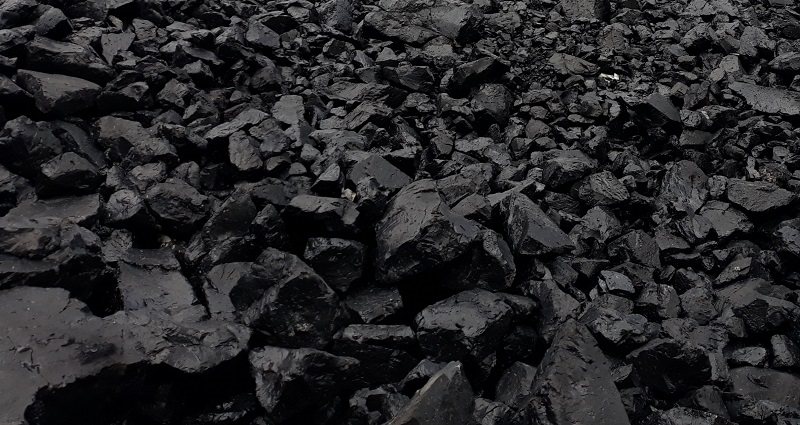

Bitumen is an important component of our world. The substance is responsible for waterproofing, sealing, and insulating different materials in a myriad of industries. Apart from that, bitumen is used widely in road construction as a strong binder. Bitumen not only lowers costs of road construction, but it also reduces the need for maintenance and prolongs the service life of roads across the world.
Bitumen has various types and grades. Based on its resource (natural or refined), bitumen comes with different features and properties. This results in the classification of bitumen into various grades with different applications. For each property of bitumen and in order to make bitumen more understandable, we have provided a comprehensive database of bitumen properties, types, and grades, on our website before. Below you can see our introduction to these databases.
Bitumen is a petroleum based material, used for binding stones and sands and producing asphalt for road construction. The majority of bitumen across the world is produced by the distillation of crude oil. In the normal process of an oil refinery, crude oil is heated in an atmospheric distillation column. This will lead to the separation of various parts of crude oil according to their molecular weight. The heaviest part of the oil that remains at the bottom of the distillation column, is called Vacuum Bottom and forms the raw material for producing refined bitumen.
For processing vacuum bottom and producing bitumen, we transfer it to another refinery. There, we use various methods of processing VB, including blowing, blending, mixing vacuum bottom with water or solvents, and modifying it with polymers, so that we can provide the bitumen market with various types and grades of bitumen.
itumen, asphalt, and tar have many similarities. Therefore, some people use them interchangeably. However, these three materials are completely different from each other.
The main difference between bitumen and tar lies in the fact that each material is derived from various sources. Bitumen is distilled from crude oil, but tar is produced from coal or wood. Based on their sources, these two materials have different properties and applications, therefore, we cannot use tar instead of bitumen.
Bitumen and asphalt are different materials, too. Bitumen is an adhesive material, perfect for binding sands and stones and producing asphalt for road construction. Bitumen alone is not suitable for paving roads.
Since various kinds of crude oils give various types of bitumen with completely different properties, grading bitumen is vital. For grading bitumen based on their properties, refineries use a number of standard tests to measure the viscosity level, penetration value, performance, and consistency of bitumen. The result of these tests is bitumen penetration grades and viscosity grades.
Other grades of bitumen, including cutback bitumen, oxidized bitumen, and bitumen emulsions are classified based on their production process.
Bitumen penetration grades are ideal for paving roads and other surfaces. They are named after their method of grading. For classifying bitumen after production, we use a device named penetrometer. The device has a standard needle that penetrates the sample of bitumen and helps us measures the hardness level of bitumen. If the needle goes easily into the bitumen sample in a given time, the bitumen is softer, but if it struggles to enter the sample, it is harder. The softest grade of bitumen penetration is called 100/120, and the hardest grade of bitumen penetration is called 30/40. Other grades of bitumen penetration are 40/50, 50/70, 60/70, 80/100, and 85/100.
The most conventional grade of bitumen that performs well in the majority of road projects, is bitumen penetration 60/70. This grade of bitumen is the best option for coating and adhesion of aggregates in a wide range of temperatures (from -22 to +76).
Although this grade of bitumen is less processed in comparison to other grades of bitumen, its quality is acceptable. To ensure that bitumen 60/70 will stand up to various temperatures, we do a number of tests on it, right after production. Among these tests are penetration, softening point, ductility, and flash point.
As bitumen pen 60/70 is widely used across the world, it has hundreds of producers, among them the Middle Eastern countries. The region is currently a hub for bitumen 60/70 traders. The quality of bitumen pen 60/70 in this region is guaranteed with an acceptable amount of valuable hydrocarbons present in it. In addition, this bitumen price in the Middle East is much affordable than other countries too.
Another widely used grade of penetration is bitumen 80/100. This bitumen’s level of hardness makes it ideal for paving roads in India and Central African countries.
The popularity of bitumen pen 80/100 lies also in the fact that it can reduce the costs of road construction substantially. With an affordable price, this grade of bitumen helps traders with increasing their margins and end users with extending the service life of the roads.
Just like bitumen pen 60/70, main refiners and suppliers of 80/100 grade are located in the Middle East. The region is one of the leading producers of crude oil in the world, therefore, its capacity for producing bitumen with premium quality is exceptional. Bitumen 80/100 in the Middle East is much affordable than other countries as well.
By clicking on the picture below, you can read more about bitumen penetration 80/100.
Another prominent method of grading bitumen is the viscosity grading system, which leads to the classification of bitumen into four categories, VG 10, VG 20, VG 30, and VG 40.
Each grade of viscosity bitumen has certain applications and performs differently in various temperatures. VG 10, for instance, is widely used in spraying applications and surface coating. As viscosity grades have various properties, it is vital to check their viscosity level, penetration value, and other specifications, before making any decision.
In comparison to bitumen penetration grades, VG bitumen grades are tested and classified more carefully. They are recognized for their accuracy, predictability, durability, and reliability of specifications.
Although bitumen VG10 and bitumen pen 80/100 have some similar properties, they do not have the same performance. Due to its better resistance to changes in temperature, particularly in cold regions, VG10 achieves higher efficiency in road projects, compared to bitumen 80/100.
Owing to the fact that only a few of bitumen refineries are capable of producing VG10 bitumen, this grade of viscosity bitumen will cost slightly more than bitumen 80/100. See the latest price of bitumen VG10.
Since bitumen VG 10 is more costly to be traded overseas, it is highly important for bitumen traders to check the quality of bitumen before making a deal. Currently, the only way to make sure that a bitumen VG 10 has a good quality is to ask for the result of regular tests done in any refinery.
Bitumen VG30 is similar to bitumen 60/70 in terms of appearance; however, these two grades have different capabilities. First of all, a high quality vacuum bottom is used in the production of VG30 bitumen. Secondly, VG 30 bitumen is proven to work more efficiently than pen grade bitumen 60/70, because it is tested more carefully.
Another thing you need to know when buying VG 30 bitumen is the price. Compared to bitumen 60/70, the price of VG 30 is a bit higher, mainly because of its better quality and performance in road projects
Refineries produce VG 40 bitumen for being used in countries with higher temperatures. This grade of bitumen efficiently improves a pavement’s resistance to problems associated with higher temperatures and heavy traffic loads, due to its higher viscosity.
With its accuracy, predictability, and durability, bitumen VG40 is the best choice for road projects in Indian and African countries. However, traders always face the challenge of recognizing high quality VG 40 and not purchasing similar grades by mistake. To avoid this, we test the properties of bitumen twice before loading, once in the refinery, and once in the port. For more information on the inspection procedure of VG 40 bitumen at Infinity Galaxy,
Category :
articlesRelease date :
February 18,2023© All rights of this website belong to Hamon Gostar Naft Bakhtar
2017 – 2023
Sales and consulting expert
Support time is 9 to 18
Sales and consulting expert
Support time is 9 to 18
Sales and consulting expert
Send your message
Leave a Reply